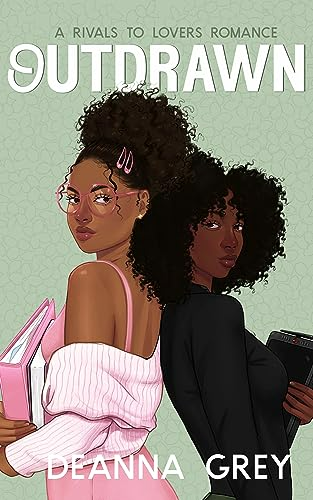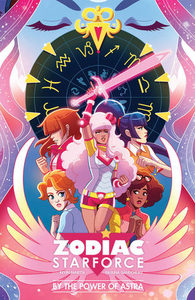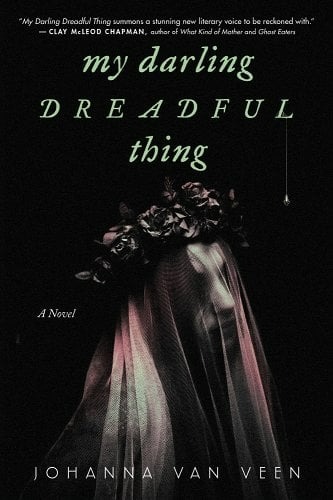This book was a real rollercoaster of a read: I was intrigued by the beginning, felt the middle dragged, and then I was completely on board again by the end. It’s about Caroline, whose best friend, Madison, has just gone missing. Caroline hasn’t been having a great time even before this. Her mother sent her to a conversion camp (where Caroline then set the place on fire and escaped). Her father doesn’t believe in anxiety or depression, and would try to swap out her medication for a juice cleanse if her knew about it. The only light in her life was Willa, her girlfriend, who she’d see by driving across the border into West Virginia and hanging out at a seedy bar with a fake ID. But Willa broke up with her and moved away. And now her best friend has disappeared. Caroline has reasons to not trust the police, so she’s determined to find Madison herself.
This is, unsurprisingly, a dark book. It begins with the lines “Everything started with the body at the edge of the lake. I know that now.” On top of Caroline’s abusive family, there’s another unnamed narrator who has gone through her own horrors: she’s living in poverty, and has seen two of her mother’s boyfriends overdose. (Unlike Caroline, who goes to a prestigious private school.)
I recommended this book on All the Books, where I have recently become a cohost. I read a few reviews in preparation, and I found out that a lot of readers didn’t like the main character. They felt she was mean, and “unlikable.” Personally, when I hear someone say a book has an “unlikable” female main character, I head straight for it. Usually, it just means they’re flawed. In Caroline’s case, I think it’s because she’s angry, and rightfully so. Do I agree with all her decisions? No, but I understand them, and I can even respect them. She is a survivor. She hasn’t had a safe environment to grow up in. So she’s always got an exit plan, and she’s not afraid of using it, even if it’s “mean.” The one who tempers this is Willa. She was clearly Caroline’s anchor: she describes her as “Willa was quiet strength, endless optimism, the girl everyone told their secrets to because they knew they’d be safe with her.” She is unmoored without her, and prior to Madison’s disappearance, her entire focus was getting through the days until graduation and then her 18th birthday, when she could finally escape for good.
There are a few other characters here: two friends who help Caroline in her search for Madison. Both are possible love interests, putting this in the bisexual character with a male and female love interest category–sort of. Because Caroline has very little space to consider either of them as romantic interests, and is still very much in love with Willa. Also: what is with the bi love triangles where the guy is just a total asshole (and the girl is very sweet and on every possible level a better choice)? I couldn’t stand Jake, who says that some people are “puddles” (and Caroline, of course, is the ocean), and is judgmental of anyone who isn’t rich, and who asks Caroline, “Why do you like girls?”
As I said, I had an up and down experience reading this. I found it difficult to get into the writing style: things seemed to keep happening abruptly, and I felt like I had missed a paragraph or a page. It’s also weird that men being framed for rape/statutory rape is an ongoing motif. Considering how much this book has to do with misogyny and which women are considered victims (and worth seeking justice for), I found that a very strange choice. I should also note that because it’s a very dark book, there are trigger warnings for murder and violence, and there’s also smoking and drug use by the teen characters. For me, the ending made me glad I stuck with it, though I can also understand why it lost some people. If you’re interested in reading about an angry, flawed character who finds herself discovering a system that considers poor and racialized victims “throwaway girls,” check this one out. If you’ve already read it, or don’t care about spoilers, here’s what I think about the ending.
It was interesting, at this point in time, to read a thriller that is so skeptical of the justice system and the police. (Caroline was “rescued” by the police while running from conversion camp, who then delivered her back to her abusive mother.) [Spoilers, highlight to read] Because of that, the murderer made perfect sense. And although it’s an exaggeration, the idea of men with power weaponizing it against women, especially poor and racialized women, is not. Caroline, already angry at the world, is consumed with rage to learn that Willa has died–and that she was trying to reach out to her. She had the opportunity to save her, and didn’t realize it, didn’t put it together. It’s sickening, but it’s an interesting story choice. She is overly harsh with Madison, of course, but Madison’s choices did lead to her girlfriend’s brutal murder, so I think that’s understandable. The moment that really turned the book around for me, though, is that she shot him herself. Many stories take that moment, where the hero has a gun pointing at the villain, and have them walk away. That’s a valid choice in some stories, but not in this one. Caroline doesn’t trust the justice system. She is facing the man who killed the love of her life, and many other women. There is no reason she wouldn’t pull the trigger. But I was impressed with this YA novel following through on it. And honestly, I cheered for her attending his funeral just to spit on his grave. She may not be “nice,” but her choices made sense, and I didn’t blame her for them. I think they made for a better story, and I wish we had more stories about women’s anger. [end spoilers]



